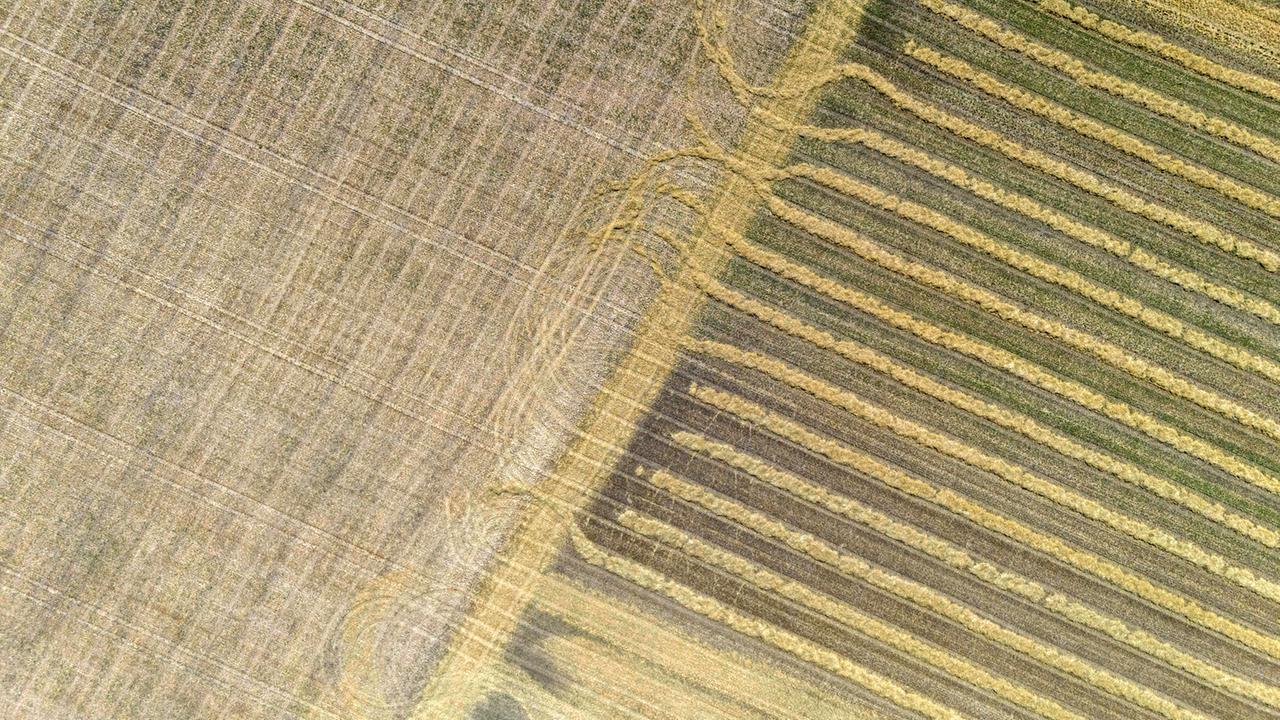Storms, a damp early summer, fungal infections, and then too hot at the end: the harvest season was anything but optimal for farmers – and this is reflected in the yields. Two examples from Baden-Württemberg.
“Farmers don't generally complain.” This message is important to farmer Stefan Kerner from Erlenbach near Heilbronn. Not everything has gone badly this harvest season either. The heavy rain has even done the industrial hemp that he plants to produce cooking oil good. “It's going to be a good harvest,” he predicts. The plant loves warm, humid weather, says Kerner, as he wanders through the man-sized plants and rubs the flowers here and there to shake off a few seeds to check their quality. “The hemp seeds are very nice, very uniform,” is his conclusion. He will soon be able to harvest.
The problem: Hemp is an absolute niche product. 5,000 hectares are cultivated throughout Germany. In comparison, the figure for wheat is around 2.7 million. And the harvest there looked significantly worse.
Yields like in the drought year
“The yields are comparable to the very bad drought year of 2018,” says Kerner. The only difference is that this time it wasn't the drought that was causing problems for farmers, but the heavy rain. An early summer that was far too wet led to major fungal infestations, storms delayed sowing or flooded entire fields. There was far too little sun. This affected the development of the plants. “The result,” says Kerner, “is a lot of straw in the field, but unfortunately not much grain.”
Farmers' Association: “Significantly below average” grain harvest
The farmers' association expects a “well below average” grain harvest of 39.3 million tons this year. Last year, the harvest was 42 million tons. Both the quantities and the quality have suffered in some regions due to the recurring and sometimes very heavy rainfall, the association said. The poor harvest shows “once again the clearly noticeable effects of climate change.”
The farmers' association said that the heavy rain was “mostly” good for sugar beet, corn, potatoes and vegetables. However, potatoes in particular suffered greatly from blight. New diseases have increasingly appeared in sugar beet. Fruit growing has suffered “significant damage”, particularly from late frosts.
Farmers' President Joachim Rukwied also blamed “misguided legislative guidelines” for the low harvest. “Guidelines that are impractical and impractical” must be removed. It cannot be the case that there is demand for quality wheat, but farmers can only produce feed wheat due to ever new regulations, for example on fertilization, Rukwied criticized. The increasing restrictions on plant protection are also exacerbating the decline in yield and quality of grain and rapeseed.
Like almost all farmers in Germany, he finished harvesting grain last week. Because the weather has been good recently, at least the harvest itself went smoothly. But what he has harvested only looks good at first glance. “In general, the protein levels and therefore the gluten levels are lower than in recent years, and that is reflected in the baking quality,” says Kerner. The result: If you want to bake bread from this grain, the dough is not as stretchable and kneadable. This is why grain of excellent quality is in even greater demand.
Fungal infection also a problem
Fruit farmer Andreas Beck from Eberdingen, north of Stuttgart, also describes this year's harvest as “exciting” and “special”. Unlike with grain, his apples are only just getting started. Since Monday, his Polish harvest workers have had their hands full – at least where frost and rain have not struck.
“It can happen that a field was spared and a few hundred meters further on there are much worse yields,” reports Beck. He also had to deal with fungal infections, and in the end it was so hot that some apples even got sunburned.
Will extreme weather become the norm?
In the future, due to climate change, farmers will have to prepare for summers with extreme weather conditions to become more frequent, perhaps even the norm. Fruit farmer Andreas Beck has already reacted and reduced his cultivation area so that he can look after the remaining plants more intensively. For berries, he is increasingly using polytunnels. Quality rather than quantity is the motto. However, the mixed harvest will probably not make the fruit more expensive for the time being – there may just be less on offer in the supermarket due to the smaller quantities.
Both farmers have come to one conclusion after this harvest season: Without any plant protection, they would have had an even worse harvest due to the extremely high level of fungal infestation. Even if the reduction makes sense, says Stefan Kerner in Erlenbach, and he does everything he can to achieve it – it is simply not possible to do without it in such extreme years. Those who have used plant protection products have up to 25 percent higher yields than those who did not want to or could not due to organic regulations. “It's a bit like with people: when we are sick and take something for it, we simply go through life differently,” says Kerner. It is the same with plants.




